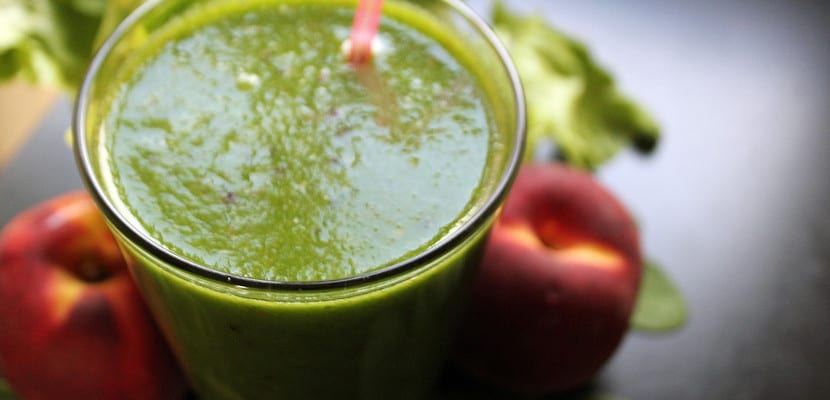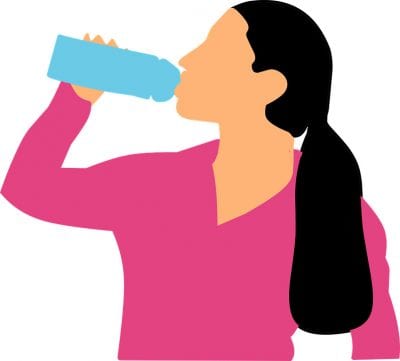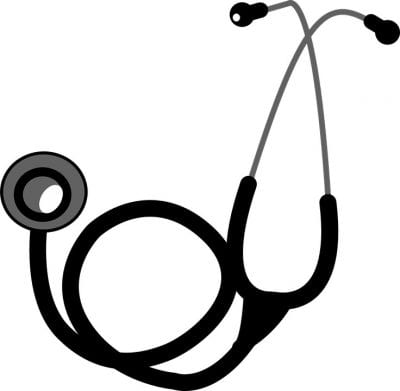
A liquid diet is one that provides all the calories (or at least a good part) through drinks instead of solid foods. Ideally, it involves easily digestible proteins, vitamins, minerals and carbohydrates, as well as small amounts of fat.
They are often used before or after an operation. What's more, since they are usually low in calories, they are sometimes used for weight loss.
What does it consist on?

When a liquid diet is carried out, Drinks such as fruit and vegetable juices, herbal teas, broths and smoothies replace the usual meals in quantities of three or four a day. Sometimes it is also allowed to take gelatin.
The type of liquid diet to follow depends on the needs of each person. Some liquid diets replace all meals of the day with liquids, while others only replace one or two. In these cases it is usually breakfast and lunch. Dinner is a healthy meal.
There are companies that sell shakes to replace meals. This type of liquid diet is usually the first phase of a weight loss plan. Later on, solid foods are gradually reintroduced. There are also the famous liquid diets for detoxifying purposes. In this version, only beverages that are attributed the power to eliminate toxic substances from the body are taken, but they are not considered healthy due to the lack of nutrients.
Finally, doctors may recommend a liquid diet before or after some operations. There are several types, some being stricter and others less when it comes to allowed liquids. An example is people with obesity who need to reach a safe weight before undergoing any type of surgery, including weight loss surgeries. The liquid diet can also be beneficial when you need to offer a rest to the digestive system. Episodes of vomiting or diarrhea are an example.
Are they nutritious enough?

Before starting a diet, it is important to ask yourself this question: is it nutritious enough? In the case of liquid diets, it is necessary to ensure that the drinks provide 100% of all the nutrients that the body needs during the day, especially when drinks are substituted for all meals of the day.
Although anyone can do a liquid diet on their own, it is advisable to seek medical supervision for safety, especially when it comes to the lower calorie versions. And it is that these will hardly provide the proteins, carbohydrates, fats, vitamins and minerals of a balanced and healthy diet, which can lead to a variety of side effects, some very dangerous. Liquid diets that do not allow solid foods can deprive you of essential nutrients.
Are they safe?

Talk to your doctor about whether a liquid diet is right for you.. Also, for this diet to be safe it should be done under the supervision of a professional, especially the lower calorie versions. Aside from creating a diet that is right for you, the dietitian's main job will be to monitor and make sure you are getting the necessary calories and nutrients while you are on the liquid diet. That can include food supplements.
The safest liquid diets are those that are not very low in calories and include one or two solid meals a day. The reason is that they allow the weight loss to be more gradual and healthy, which increases the chances of it being a long-lasting weight loss. Satiating foods play a highly important role in meeting these goals.
Instead, drinking only liquids for long periods of time is not considered safe. It should be noted that it is not advisable to follow a liquid diet when suffering from a chronic disease. They are also not considered safe for pregnant or nursing women.
Does it work for weight loss?
Following some type of liquid diet can help you lose weight. As with all weight loss plans, the key is to burn more calories than you consume. And these types of diets often help meet this requirement.
But most are not intended to be followed in the long term. Therefore, there is a risk of regaining the weight lost after finishing the liquid diet and returning to your normal life. Its results tend not to be long-lasting because they have occurred because of a drastic cut in the calories ingested and not through a change in your eating habits.
However, there are liquid diets better than others in this regard. The most effective and recommended for overweight people are those that help control portions and the number of daily calories. These are the less drastic versions, which combine liquids with solid foods.
